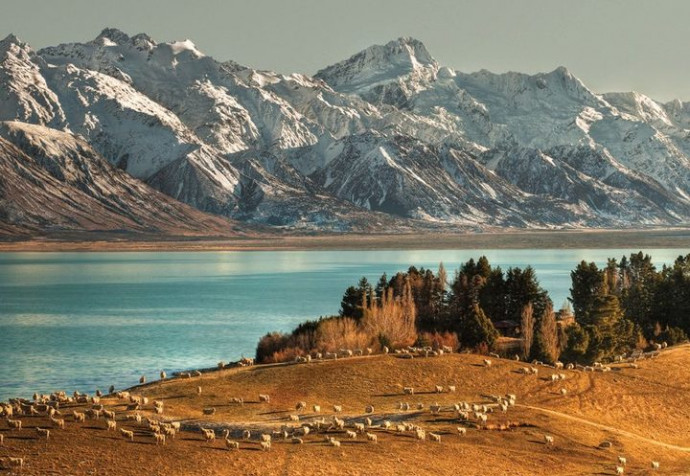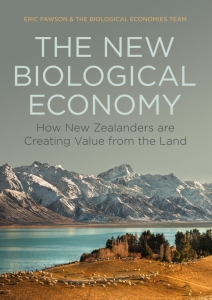The New Biological Economy: How New Zealanders are Creating Value from the Land

Published 8 February 2019
By Eric Pawson and the Biological Economies team
Published by Auckland University Press, 2018
Marsden Fund contract UOA0924 'Biological economies: knowing and making new rural value relations'

From milk and merino to wine and tourism, The New Biological Economy talks about how New Zealanders are transforming how we make a living off our land.
For over a century, New Zealand has built its economy through a series of commodity-based booms – wood,
wool, beef and butter. Now the country faces new challenges. By doubling down on dairy farms, aren’t New
Zealanders destroying the clean rivers and natural reputation upon which the country’s primary exports (and
tourism) are based? And in a world where value is increasingly rooted in capital- and technology intensive
industries, can New Zealand really sustain its high living standards by growing grass?
This book takes readers out on to farms, orchards and vineyards, and inside the offices and factories of
processors and exporters, to show how New Zealanders are answering these challenges by building The New
Biological Economy. From Icebreaker to Mr Apple, from milk and merino to wine and tourism, from highend
Berlin restaurants to the shelves of Sainsbury’s, innovative companies are creating high-value, unique products, rooted in particular places, and making pathways to the niche markets where they can realise that value. The New Biological Economy poses key questions. Do dairy and tourism have a sustainable future? Can the primary industries keep growing without destroying the natural world? Does the future of New Zealand lie in high tech or in the innovations of a land-based economy?
Link to Professor Eric Pawson's institutional webpage
Link to Professor Richard Le Heron's institutional webpage (co-PI, Biological Economies)
Link to Professor Hugh Campbell's institutional webpage (co-PI, Biological Economies)
